
Lillian Suwanrumpha
As one of the world’s largest stateless groups of people, the Rohingya are also described as the most persecuted. For me, Greg Constantine’s exhibition “Exiled to Nowhere” in Bangkok last year hit home the horrors inflicted upon them. In September 2014 I visited Sittwe’s IDP camps in Rakhine State, the...
As one of the world’s largest stateless groups of people, the Rohingya are also described as the most persecuted. For me, Greg Constantine’s exhibition “Exiled to Nowhere” in Bangkok last year hit home the horrors inflicted upon them.
In September 2014 I visited Sittwe’s IDP camps in Rakhine State, the Rohingya’s ancestral homeland. I was unsure of the story I wanted to tell but unwittingly gravitated towards the many women and girls who were determined to tell me theirs.
The discovery of trafficking camps along the Thai-Malaysian border in May 2015 triggered a humanitarian crisis reverberating across South East Asia. I set out to document and interview survivors of the exodus in Malaysia. With the help of trusted Rohingya friends, I began to interview women separately from their male wards. Forthcoming were accounts of forced labour and physical torture by the Burmese military, descriptions of starvation and sexual assault by traffickers on boats and in the camps. Cries of shame as domestic abuse, spousal desertion and their own forced abandonment of children was recalled. Such troubles could not be relieved by confiding with husbands, even those that clearly love them, as whispers lead to communal rejection. Patriarchal and conservative values of Rohingya society, along with the certainty of violence inflicted by displacement and genocide, is a double-edged sword ensuring that, as amongst the world’s most persecuted, the Rohingya women are also the most oppressed.
As I become attached to these women, and my journalistic commitments to impartiality erode, I begin to see them less as passive victims of violence but as survivors who fight tremendous odds to find a better life.
Not The Promised Land is an ongoing project for the Rohingya women who can not leave the violence of their existence behind despite the miles they have walked. And for the inner strength and secrets they must keep in order to survive in lands that can not fulfil the promise of peace.
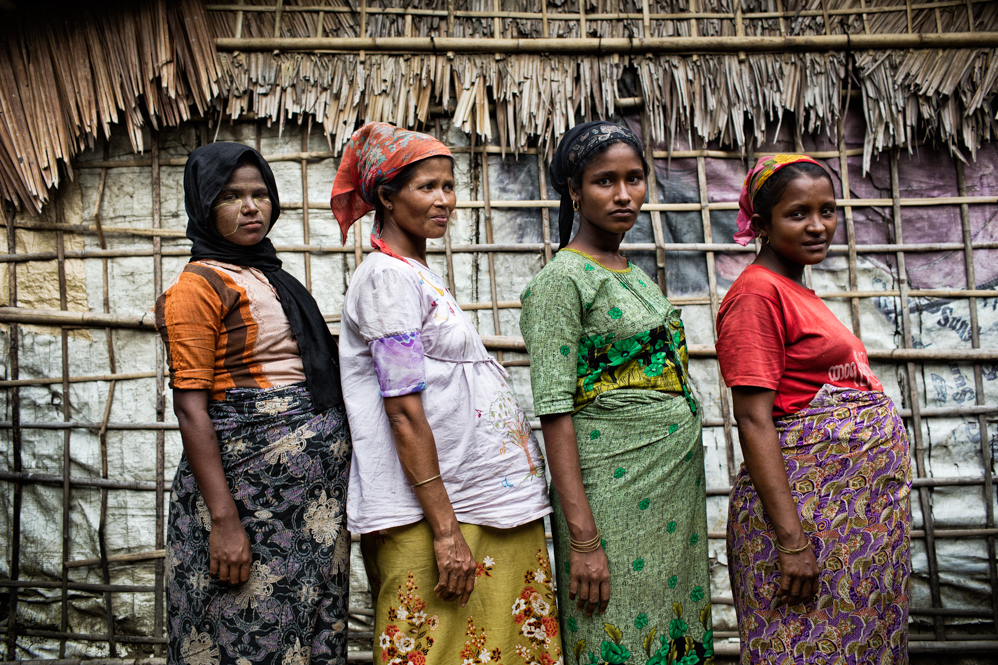
Senwar, 19. Die Lie, 35. Noor Akis, 20. Lalu, 35.
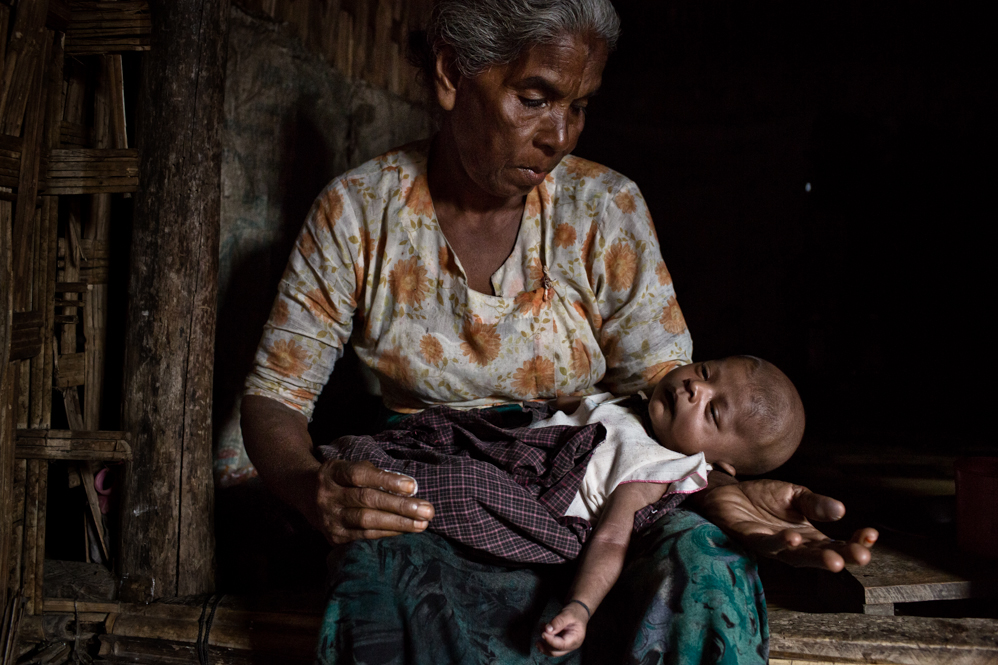
Unknown Future
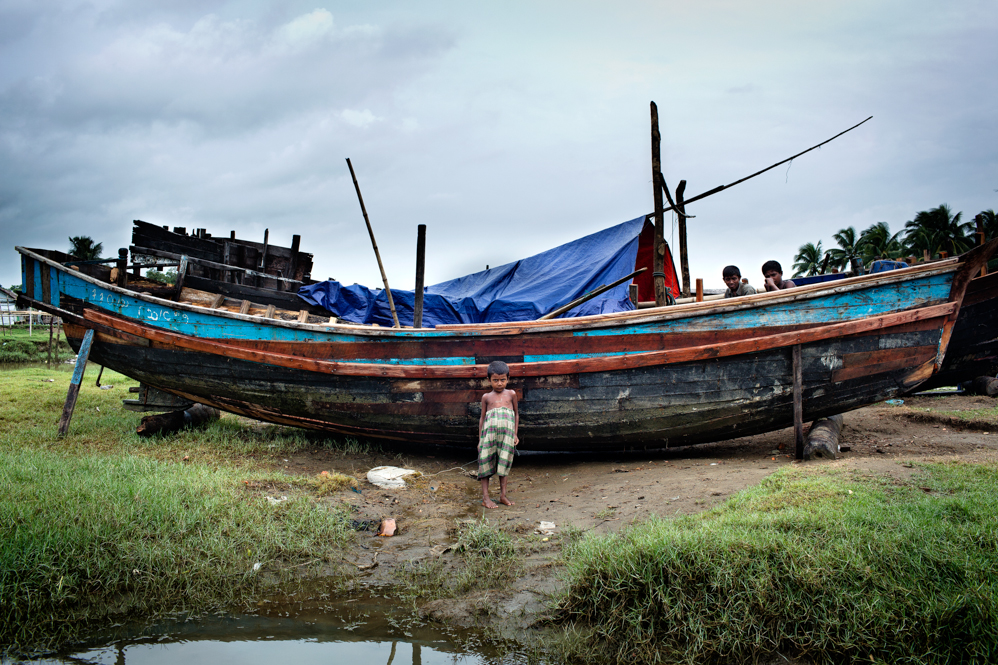
Girl and Boat
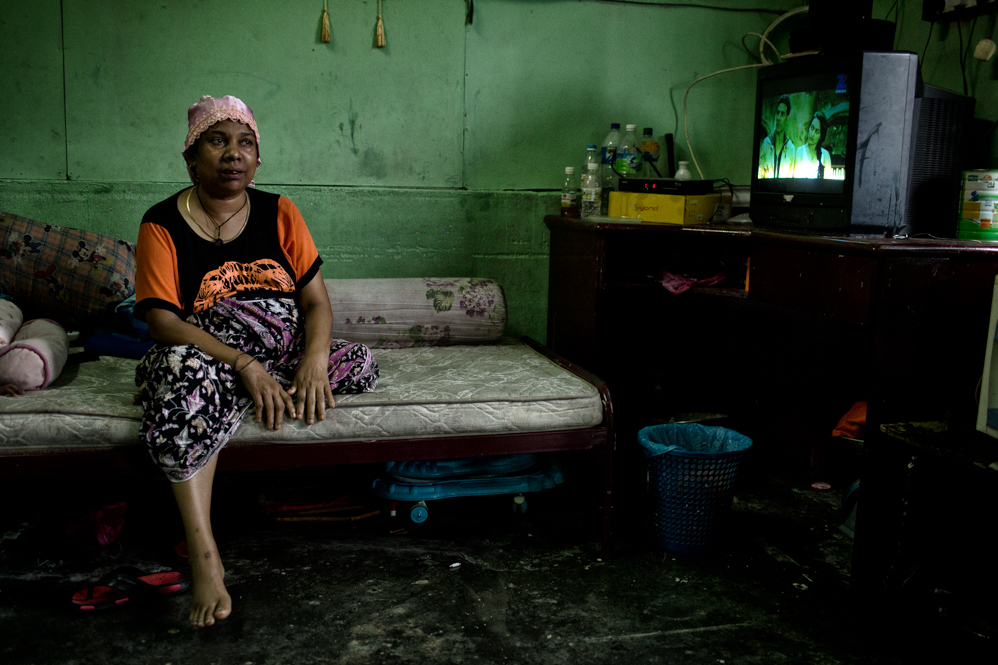
Nasima, 46.
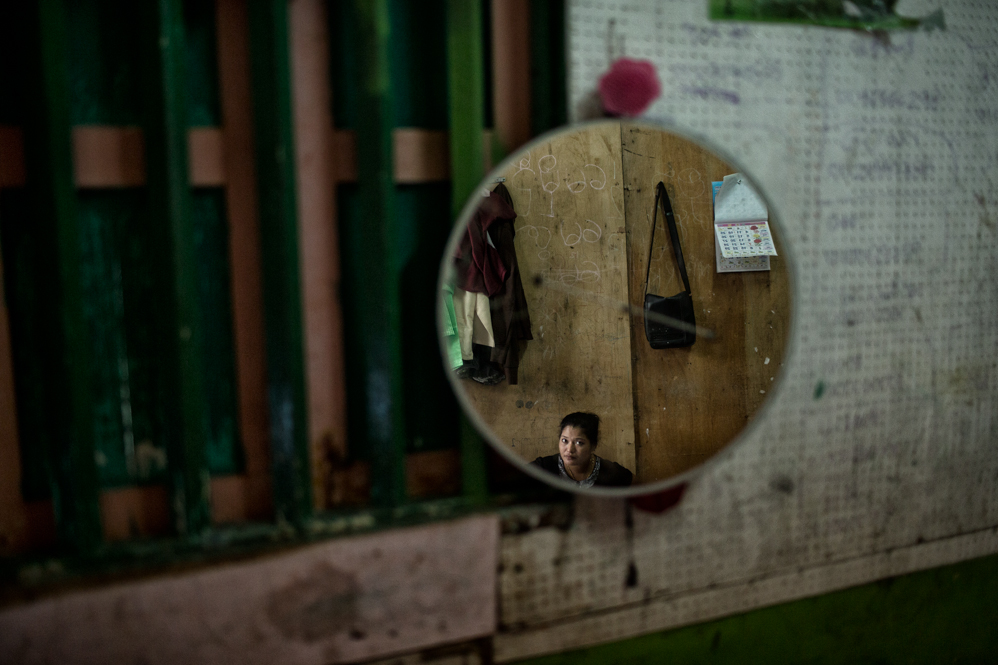
Aisha.
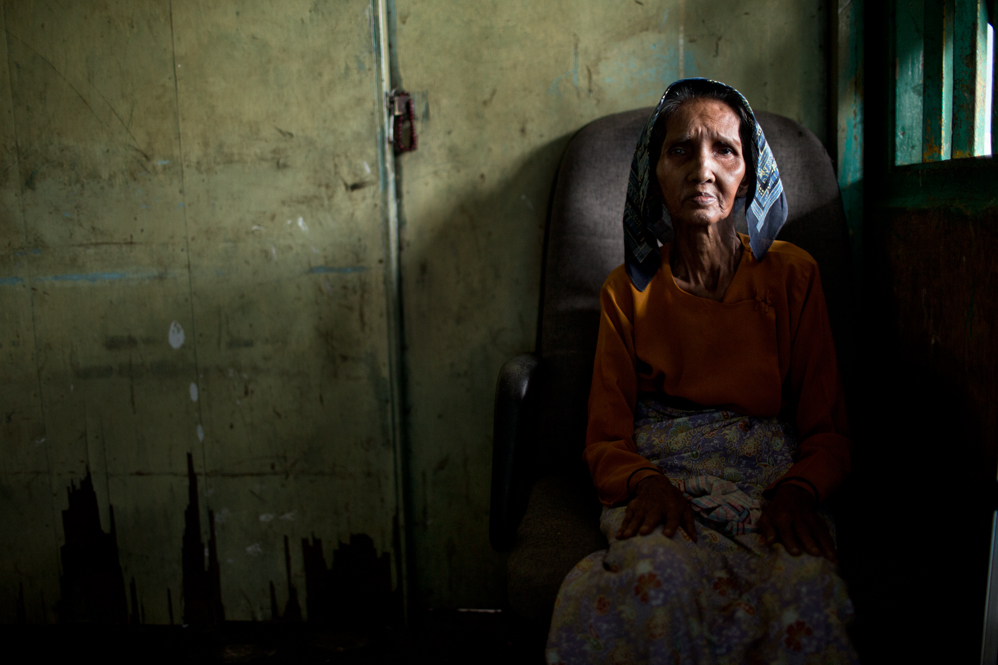
Rohima, 72.
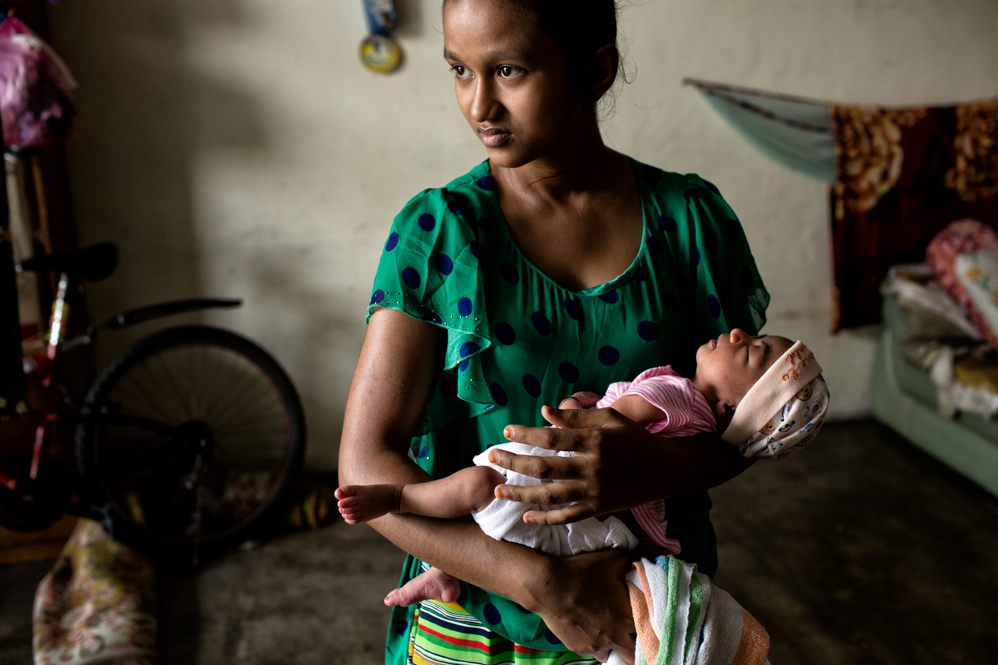
Siti Noor, 15. Nur Mariensha, 8 days.
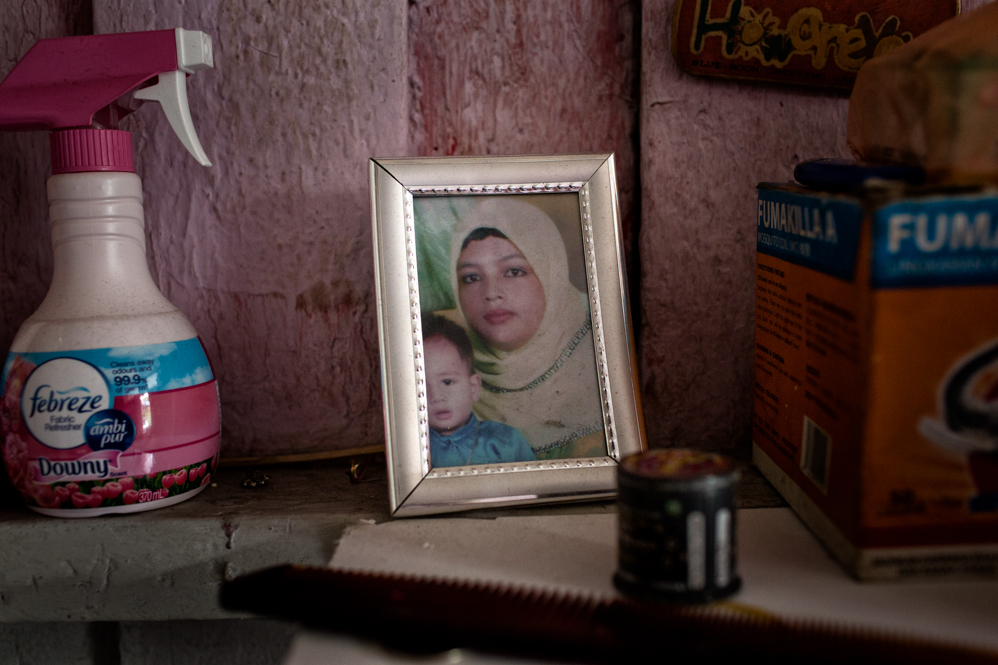
Nur Jahan, 64.
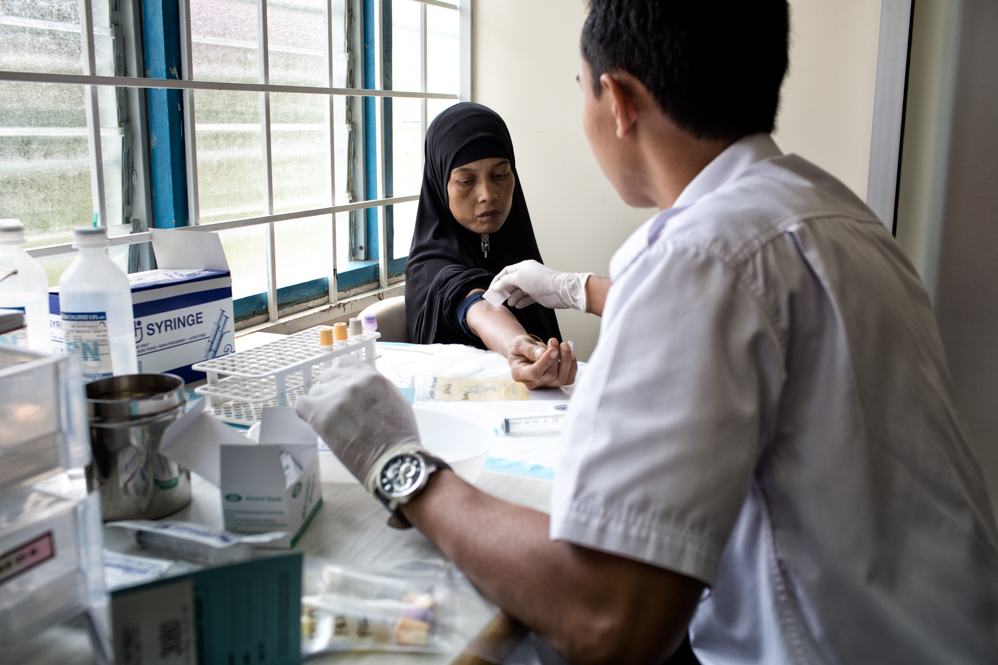
Shahida, 35.
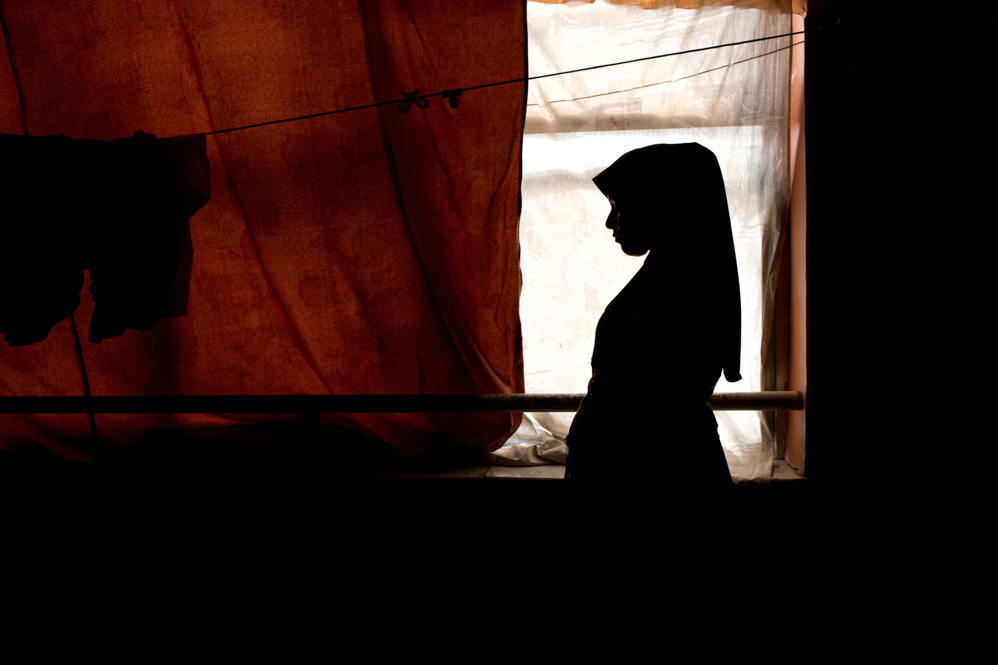
Roseen, 28.



